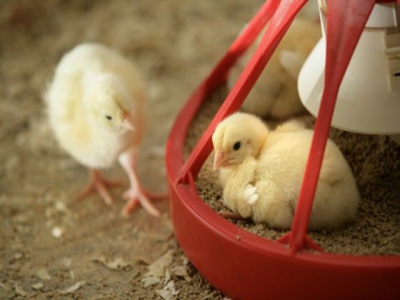Developing nations need robust support to reduce medicine use

It can seem distinctly unfair to judge developing countries’ practices when it comes to the environment or use of fossil fuels. After all, the western world was able to freely exploit resources before science proved what harm they can cause.
Photo: Koos Groenewold
There’s an argument that it’s the same for antibiotic use in farms. Until relatively recently, there was little in the way of restriction on antibiotics use in many developed countries and their populations benefitted from the intensively produced protein that resulted. People no longer had to worry about where their next meal was coming from, so could focus on improving economic output.
As resistance levels have increased, however, regulations have tightened and, in many cases, farmers have successfully reduced their use of medicines sustainably.
But in less developed regions it is clear that there is still some work to do, after an investigation found the antibiotic colistin for sale without prescription in India. What’s more, the packaging reportedly advertised improved growth rates as a benefit of mixing the drug with poultry rations.
Colistin is considered critically important by the World Health Organization, and is the only drug left that can treat patients with carbapenem-resistant infections.
The medicines were bought by journalists working for UK news organisation the Bureau of Investigative Journalism. As part of the report it asked Timothy Walsh, professor of medical microbiology at Cardiff University, for his views on the matter – he suggested it was “complete and utter madness” to use the drug in poultry farming.
India’s ministry for health introduced limited restrictions to antibiotic use last year, and the International Poultry Council recently released a position paper on the subject that has some promising features. But, crucially, using the drugs as growth promotors was not formally banned by either.
While the argument about allowing developing countries to do so in their own time stands, there’s a real risk that good medicine stewardship in some regions will be totally undermined by low standards in others – after all, resistant bacteria does not respect borders.
Có thể bạn quan tâm
 Resistant bacteria in intestinal tract linked to antibiotic usage
Resistant bacteria in intestinal tract linked to antibiotic usage Levels of antibiotic resistance in the intestinal tracts of broilers and pigs are linked to antibiotic usage, according to the results of a pan-European study.
 How to tell if chicks are getting what they need
How to tell if chicks are getting what they need Without proper brooding, chicks can’t reach their genetic potential, resulting in reduced yield, poor flock uniformity, and higher mortality rates.
 Reasons for buying animal welfare friendly eggs researched
Reasons for buying animal welfare friendly eggs researched Age, income, education, occupation and religion all have an impact on willingness to pay for animal welfare friendly eggs